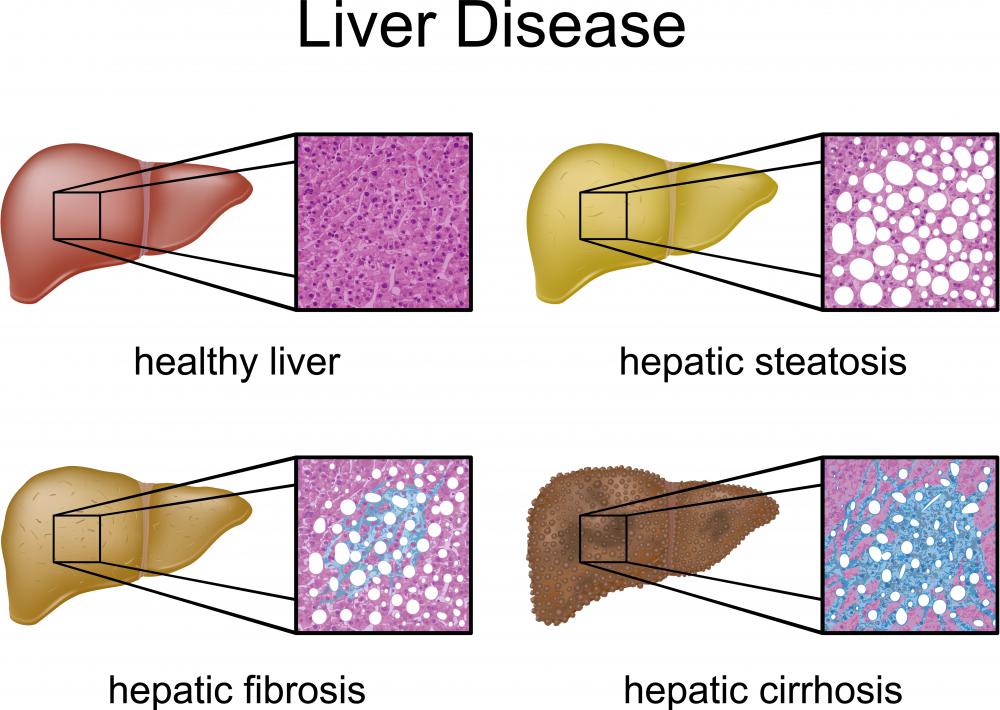At WiseGEEK, we're committed to delivering accurate, trustworthy information. Our expert-authored content is rigorously fact-checked and sourced from credible authorities. Discover how we uphold the highest standards in providing you with reliable knowledge.
What is the Connection Between Cirrhosis and Hepatitis?
Cirrhosis and hepatitis are connected because many people who contract a hepatitis infection eventually develop cirrhosis. While hepatitis C infection does not always become chronic, it can do so in as many as 80% of adults who contract the virus that causes it, HCV. As many as 30% of those who suffer from chronic hepatitis C will eventually develop cirrhosis, or permanent liver damage due to scarring of the liver tissue. Some people who contract hepatitis B go on to eventually develop cirrhosis, though this is not as common. Hepatitis A and hepatitis D do not generally cause cirrhosis.
While cirrhosis and hepatitis can often be linked, hepatitis is not always the cause of cirrhosis. Other causes of cirrhosis can include heavy alcohol use, which may be the most common cause of liver scarring. Toxic exposure, prescription drug reactions, parasitic infestation, and diseases such as Wilson's disease or cardiac cirrhosis can also lead to cirrhosis of the liver.

Some people who develop chronic hepatitis C infection are more likely than others to eventually suffer cirrhosis and hepatitis. Alcohol use before or after infection with hepatitis can raise the risk that cirrhosis will eventually occur. Persons infected with HIV or hepatitis B in conjunction with hepatitis C are more likely to experience significant liver scarring. Hepatitis C patients often become more likely to develop cirrhosis as they age, leading physicians to believe that aggressive therapy for hepatitis C in patients younger than 45 can be very beneficial. The younger a person is when he contracts hepatitis C, the less likely he is to develop cirrhosis as a complication.
Other factors that can weaken the link between cirrhosis and hepatitis can include gender and treatment history. Men may be more likely than women to develop cirrhosis. Patients who have taken the antiviral drug interferon to treat their hepatitis C infection may be at a reduced risk of experiencing cirrhosis later in life.
Experts believe that there is no link between the specific genotype of the hepatitis C virus contracted and the likelihood of developing cirrhosis. Researchers have discovered there are at least six strains of this virus. The severity of the patient's infection also seems to have no connection to his likelihood of eventually developing cirrhosis.
AS FEATURED ON:
AS FEATURED ON:











Discuss this Article
Post your comments